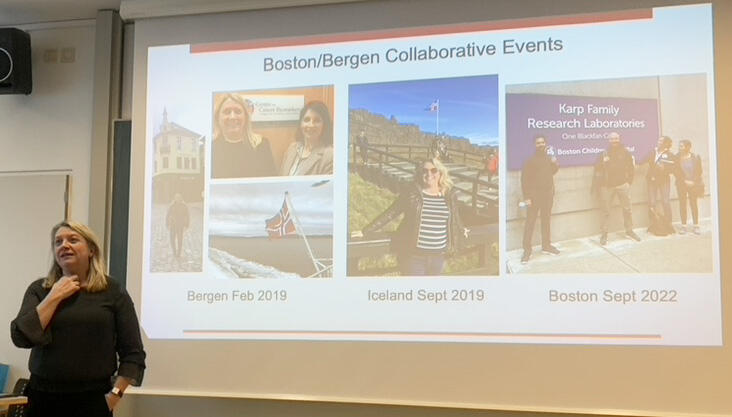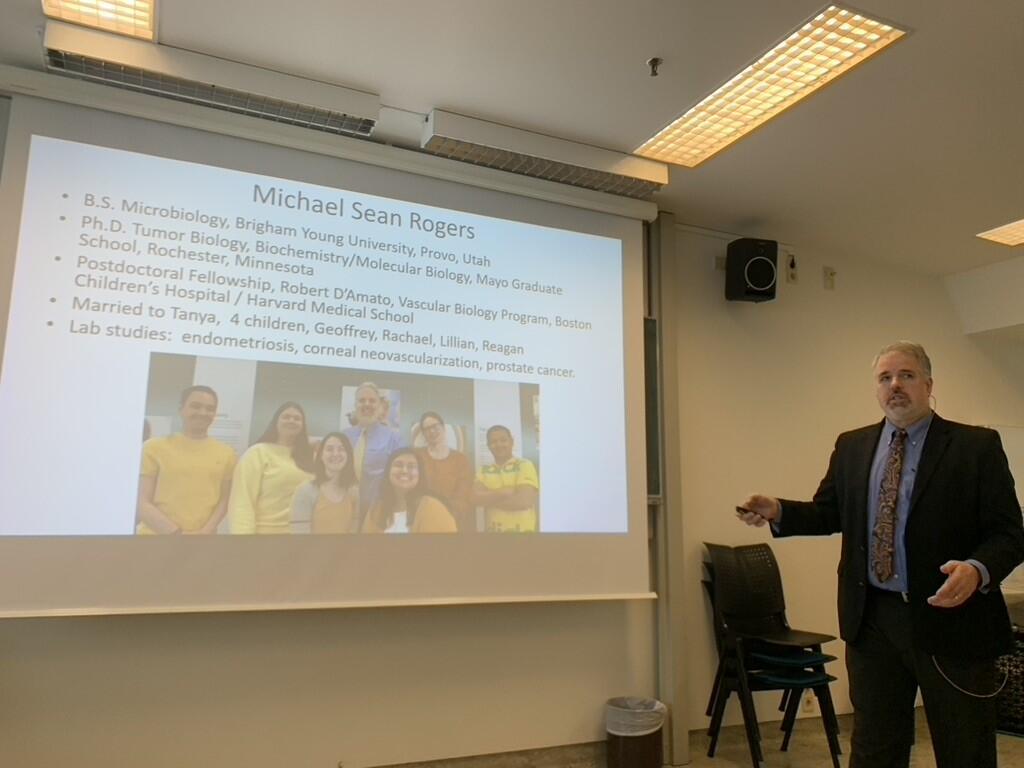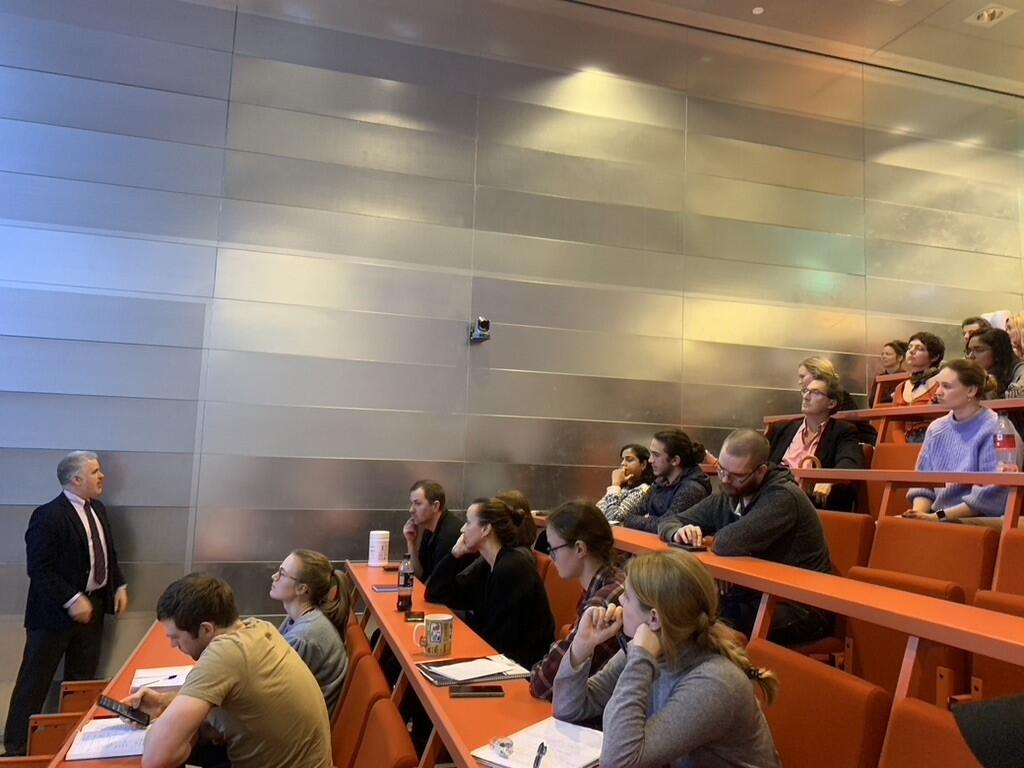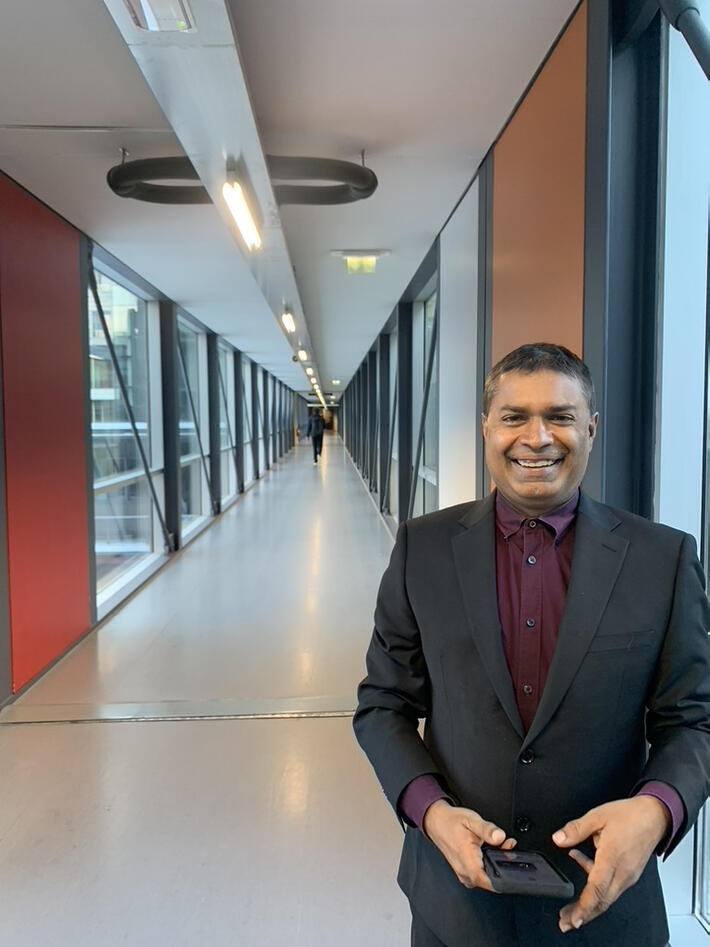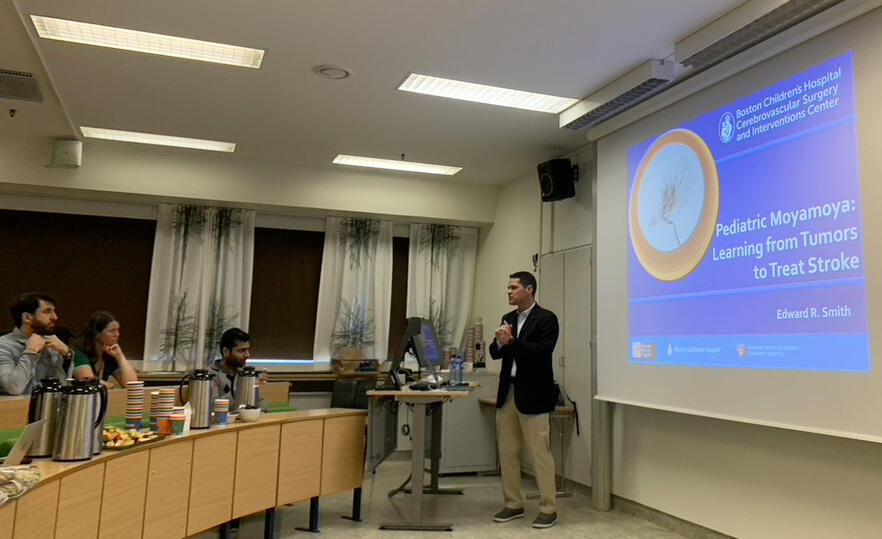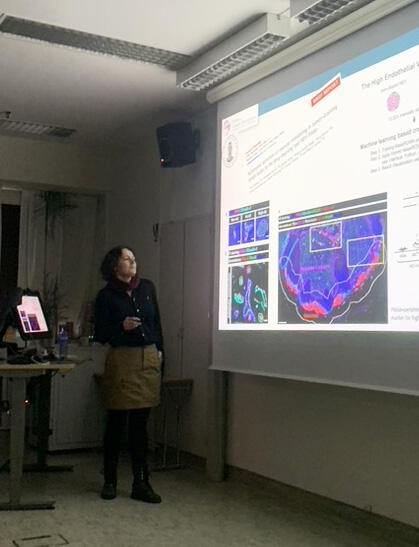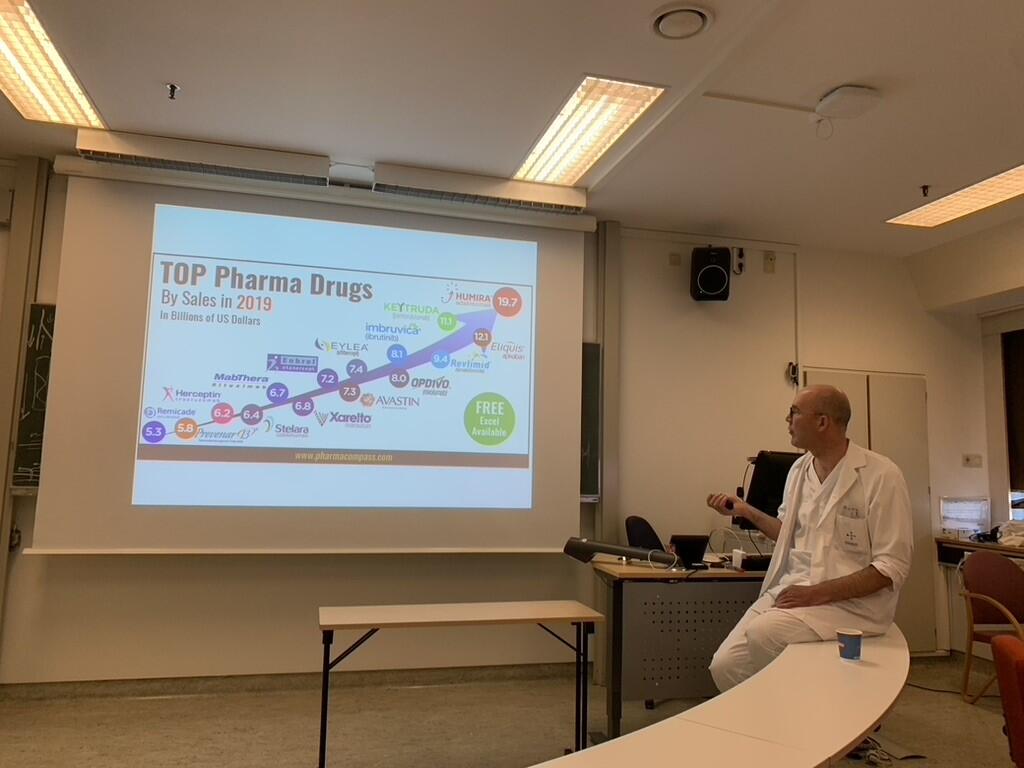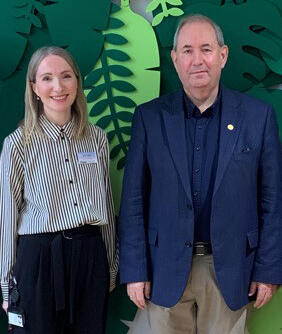A Harvard learning experience in Bergen
The INTPART-II Flagship-course CCBIO907 Cancer-Related Vascular Biology took place in Bergen March 24th to March 31st 2023, with fortunate students from UiB and a couple of visiting students from abroad who got the opportunity to learn from and connect with excellent Harvard Medical School faculty on campus in Bergen.

Main content
This unique learning experience was made possible through support for the INTPART-II project "Bergen-Harvard Cancer Studies phase 2: Continued Partnership for Responsible Education, Research and Innovation Excellence." The students learned the basics of vascular biology, vascular biology related therapeutic approaches, and biomarkers in vascular biology – from discovery to clinical application, lymphangiogenesis and vascular biology in non-cancerous diseases. They were challenged by the Harvard faculty through relevant field-specific puzzles and structured, student active learning methods like case-based collaborative learning.
First course week
Harvard faculty Diane Bielenberg and Michael Rogers are both familiar with the streets of Bergen and the corridors of CCBIO's facilities from their previous visits. The first week, the students learned cutting-edge technologies and concepts in the field of vascular biology, and they started planning their own projects in the field of cancer-related vascular biology, under Bielenberg’s and Rogers’ skillful supervision.
Case-Based Collaborative Learning (CBCL)
Rogers, in particular, challenged the students through Case-Based Collaborative Learning (CBCL), a structured and student active learning method that represented a new way of learning for most of the participating students. CBCL is a way to craft cases and structure students’ experiences of them in a way that aim to avoid straightforward answers, and rather invites debate and encourage collaboration between students from diverse academic backgrounds in small group and plenary discussions. This method requires that the students come prepared for class, and that the faculty manage to create a safe learning environment. The CBCL sessions was a great learning experience for the students, and also a great inspiration and practical example to follow for the teaching attendants participating in the course.
CCBIO Special Seminar on neuro-immune communication in endometriosis
Thursday March 23rd, Rogers also gave a CCBIO Special Seminar, a format open to a larger audience, with the title "Neuro-immune communication in endometriosis, a novel therapeutic target?" The seminar was well attended by students and faculty, and the lively discussions between clinicians and basic-research scientists continued during the pizza-get together following his talk.
Science communication: Scientific storytelling and pitching
The students also got the opportunity to interact with Harvard faculty via Zoom. Bruce Zetter participated online from Boston the first course week, and gave an inspirational presentation to the students on how to communicate their projects efficiently. Diane Bielenberg followed up with an inspirational talk on how to prepare and deliver an efficient elevator pitch, and how to tailor the pitch for various audiences. CCBIO International Faculty affiliate Randolph Watnick gave a compelling talk on scientific storytelling. These lectures on transferrable skills were popular amongst the ECTS-students, and also well attended by non-ECTS participants.
Second course week
Visiting Harvard faculty for the second course week was Randolph Watnick, who has contributed on CCBIO courses and meetings on several occasions before, as well as Dipak Panigrahy and Edward Smith, who visited Bergen for the first time, although they have contributed digitally with talks during the pandemic.
CCBIO Special Lunch Seminar by Edward Smith
In his talks, Dr. Smith stressed the importance of mutual respect and complementary contributions needed to succeed in interdisciplinary teams and disease focused research projects. Smith gave a CCBIO Special Lunch Seminar Thursday March 30th with the title "Pediatric Moyamoya: Learning from tumor to treat stroke" – showing how the cross-pollination between benchtop scientists and full-time clinicians led to a unique insight that a shared biological mechanism might be pathologic in one disease process - and helpful in another, seemingly unrelated, disease. The seminar was well attended by both clinicians and basic research scientists.
Additional highlights of the second course week was the talk by CCBIO PI Carina Strell on how to apply spatial transcriptomics in the context of vascular biology, and the final lecture on the course by CCBIO PI Oddbjørn Straume on the current use of anti-angiogenic treatment in clinical practice.
Practising new skills
When asked to present their own proposed research projects for the evaluation, it became apparent that the students had learnt a lot from the Harvard and CCBIO faculty over the two course weeks. The students had also polished their presentation skills according to the advice from Harvard faculty Bielenberg, Zetter and Watnick. The students gave excellent project presentations, and most importantly, they gave each other very constructive feedback and advice in several rounds on how to improve the projects as well as on how to optimize communication of their proposals to their peers. 13 students completed the course with approved ECTS credits.
Added value: Benefit for career building
Lars A. Akslen and Agnete Engelsen hold the academic responsibility for this course, and both were very happy to see that the students and the visiting Harvard faculty enjoyed the course in Bergen. "We believe that the knowledge, skills and unique contacts made during the active participation in this intensive two-weeks course with Harvard faculty will benefit the students in their future studies and careers," they stated. "Furthermore, we are extremely grateful to the Harvard faculty who despite their busy agendas, accepted the invitation to travel to Bergen and teach Cancer-Related Vascular Biology to our fortunate students. A particular thank you to Michael Rogers for coordinating the efforts from the Harvard faculty. "
Furthermore, the course would not have been a success without the help from a number of volunteers.
"We owe a lot to the efficient coordination from Harsh Dongre and Heidrun Vethe," says Engelsen. "Ingeborg Winge also deserves a big thank you for helping out with a lot of the practicalities. We also wish thank PhD students Camilla Ekanger and Rasmus Humlevik for excellent help organizing the CCBIO Special Symposia. And not least, the audience with the enthusiastic students as well as the non-ECTS participants and CCBIO faculty who joined in selected lectures and took the opportunity to interact with the Harvard faculty during their visit to our campus," Engelsen concludes.
The continued support for the INTPART-II project "Bergen-Harvard Cancer Studies phase 2: Continued Partnership for Responsible Education, Research and Innovation Excellence" from HK-Dir and RCN made this course possible.
Greetings from the grateful students to the visiting Harvard faculty
We will end this post by communicating some comments from thankful students in the course evaluation:
"Thank you so much for traveling all the way from Boston to Bergen to share your valuable knowledge with future scientists at the University of Bergen. I feel very fortunate to have taken part in this course, and will definitely use the knowledge gained from this course for my future research career."
"Thank you for a really well organized and insightful course! I thoroughly enjoyed these past 2 weeks, and have picked up a lot of information on tumor angiogenesis and general science skills that will be useful for me in my career."
"Thank you for setting up this course. I had a great time – easily the best course ever. The Harvard professors were really something else."
